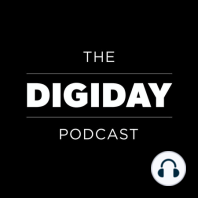29 min listen

The New York Times’ Ben Smith saw the alt-right’s rise and sees a new era for social platforms
The New York Times’ Ben Smith saw the alt-right’s rise and sees a new era for social platforms
ratings:
Length:
36 minutes
Released:
Jan 26, 2021
Format:
Podcast episode
Description
Ben Smith has an enviable view of the current media landscape. Before The New York Times announced in January 2020 that the publication had hired Smith to be its media columnist, he had eight years as the editor-in-chief of BuzzFeed, a period during which the meme publisher matured into a media company that retained its social savvy while also operating a news business. And before BuzzFeed, Smith had covered politics as a reporter and blogger at Politico. That experience helped Smith to see the coming rise of alt-right media outlets using social platforms to spread misinformation coming before many others.
“I think was increasingly aware of it at BuzzFeed. Because we were swimming in those waters, we were very quick to see the rise of the alt-right, and we covered the hell out of it in 2014 and 2015,” Smith said in the latest episode of the Digiday Podcast.
Lately Smith has been reflecting on media in the early days in the internet. Specifically he has been thinking about he and others learned how to use the web to get around gatekeepers like the big, traditional media companies and inadvertently “opened a kind of Pandora’s box,” he said. He continued, “It’s not that we didn’t see that it had a dark side, but I think we misunderstood the balance.”
“I think was increasingly aware of it at BuzzFeed. Because we were swimming in those waters, we were very quick to see the rise of the alt-right, and we covered the hell out of it in 2014 and 2015,” Smith said in the latest episode of the Digiday Podcast.
Lately Smith has been reflecting on media in the early days in the internet. Specifically he has been thinking about he and others learned how to use the web to get around gatekeepers like the big, traditional media companies and inadvertently “opened a kind of Pandora’s box,” he said. He continued, “It’s not that we didn’t see that it had a dark side, but I think we misunderstood the balance.”
Released:
Jan 26, 2021
Format:
Podcast episode
Titles in the series (100)
Spirited Media’s Jim Brady: Growing audience through display advertising is ‘not natural’: On this week’s Digiday Podcast, Spirited Media’s Jim Brady talks about building a local news media business that's sustainable. The key to economic success for Spirited Media lies in a scaled events business rather than the display advertising... by The Digiday Podcast